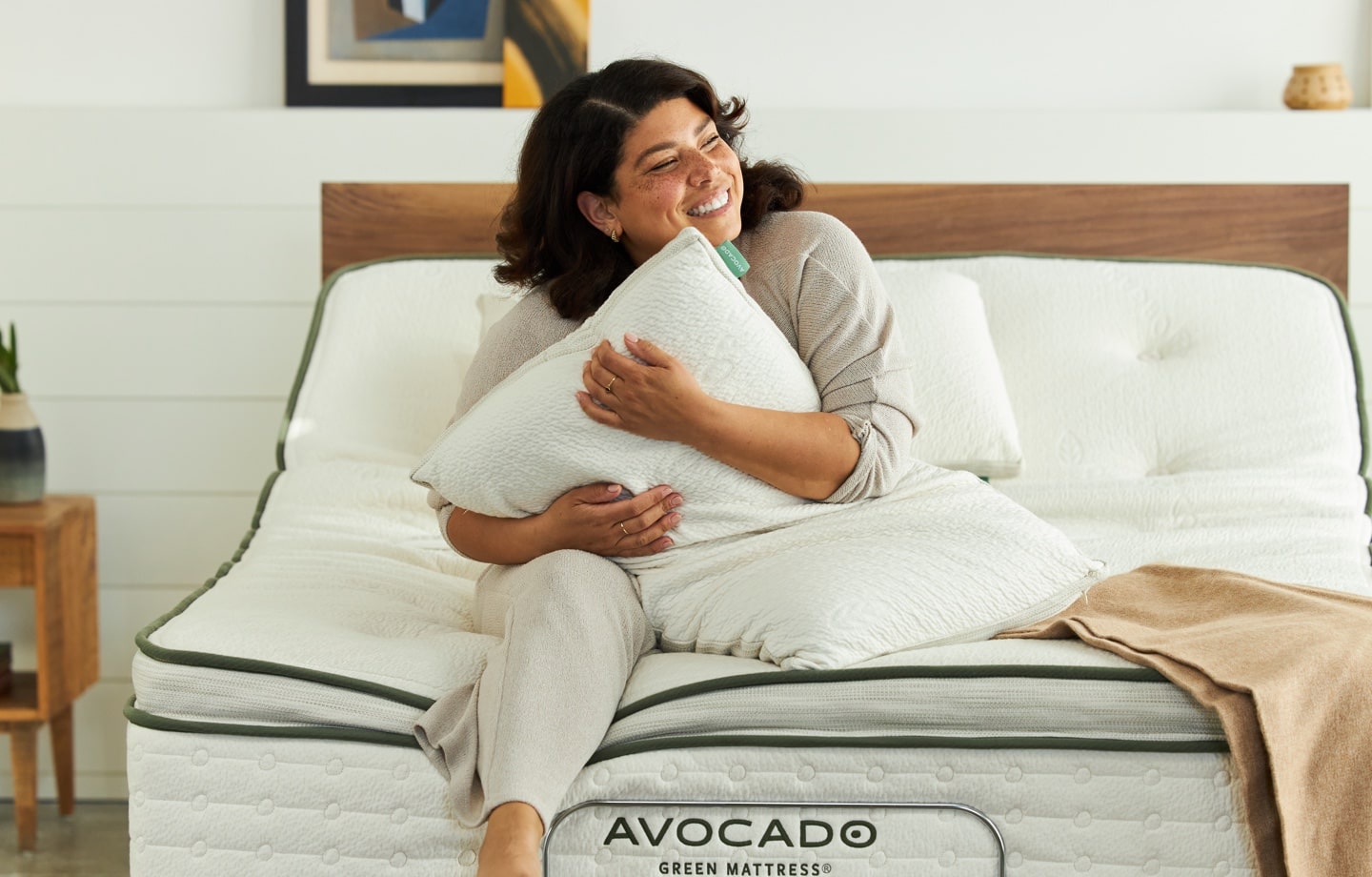Avocado’s OEKO-TEX® STANDARD 100-certified products help protect the health of you, your family, and the planet. Here’s how.
Few items in the home get as much mileage as mattresses and pillows. So it makes sense that in addition to comfort, what these products are made of — and if they’re crafted sustainably — are increasingly top priorities for consumers.
According to a 2023 study by the Better Sleep Council, 43 percent of consumers say it’s important that their mattress be manufactured using environmentally sustainable practices or materials, while 38 percent say it’s important that their mattress has one or more environmental certifications. Unfortunately, vague claims and greenwashing result in consumers buying mattresses and bed products that are far less sustainable or non-toxic than they are led to believe. (Greenwashing refers to unsubstantiated statements meant to intentionally mislead consumers about the eco-friendly nature of a product or manufacturing process.)
That’s why certifications like OEKO-TEX® STANDARD 100 matter. Avocado is the first innerspring mattress in the United States to achieve the OEKO-TEX® STANDARD 100 certification. A globally recognized, independent testing and certification system, the OEKO-TEX® STANDARD 100 label ensures that every component of a textile product, from the outer fabric to the threads, foams, and other accessories, is tested and found to be free from harmful levels of over 1,000 substances that are detrimental to human health and the environment.
But Avocado didn’t stop at mattresses. In line with our non-toxic approach and commitment to safeguarding the health of people and the planet, Avocado mattress toppers and pillows are also OEKO-TEX® STANDARD 100 certified.
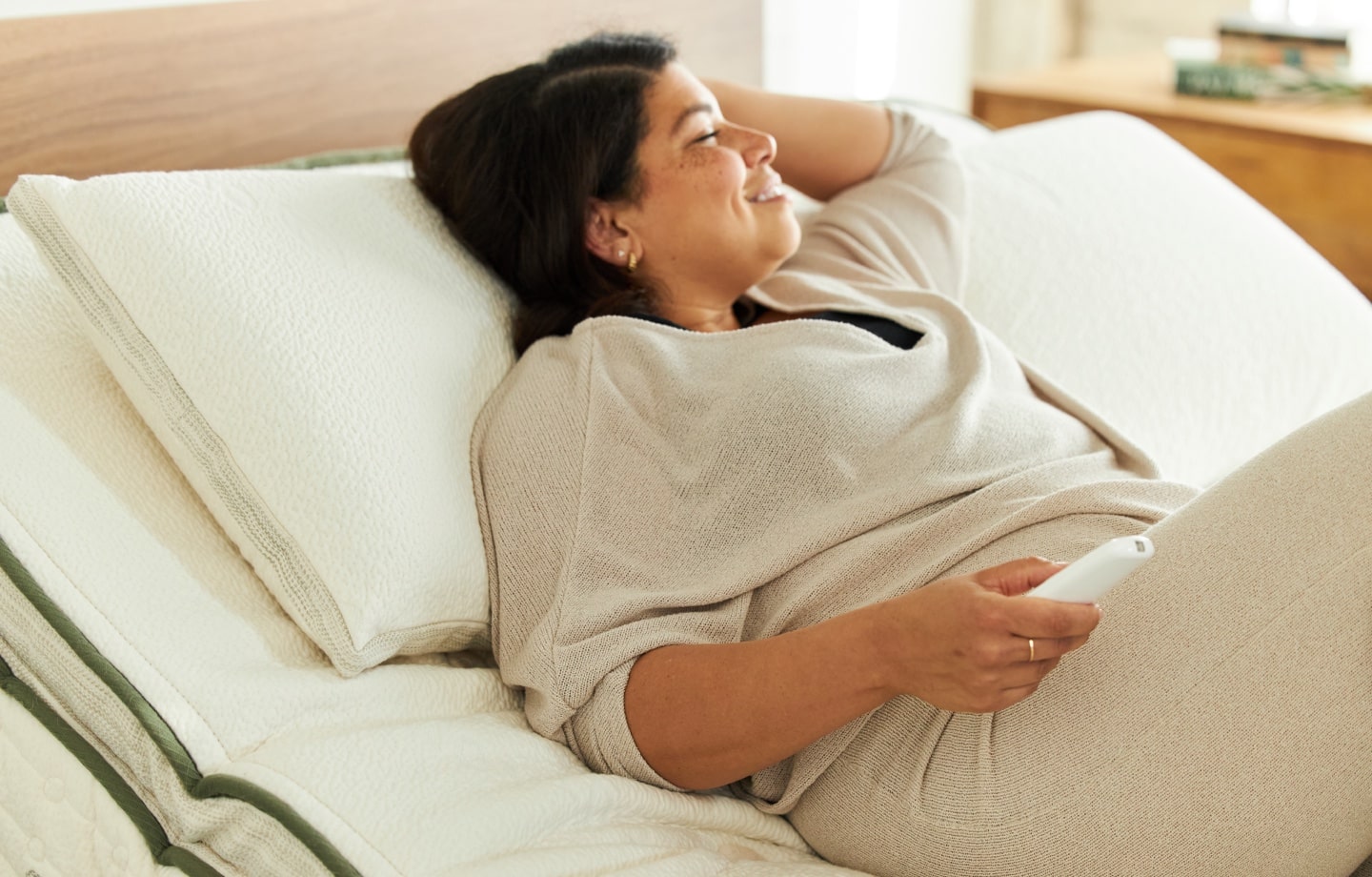
Read more: The Mattress Certifications You Need to Know
“OEKO-TEX® certifications are driven by sustainability and based on science,” says Elana Frosk, Senior Account Executive at Hohenstein Institute of America, the largest provider of OEKO-TEX® testing, certifications, and labels. “They promote transparency, work to protect natural resources, and help companies and consumers make responsible decisions. For example, OEKO-TEX® STANDARD 100 labels let consumers know the products are safe for themselves and their families.”
Many large retailers craft their mattresses, toppers, and pillows with toxic glues and adhesives, synthetic materials like memory foam and polyester blends, and chemical flame retardants. Often, these materials release volatile organic compounds (VOCs), or harmful chemicals like formaldehyde, toluene, benzene, and phthalates through a process called off-gassing.
Off-gassing can be intensified by the heat from your body when you sleep. The problem is that long-term exposure to VOCs (read: nightly when you go to bed) is linked to serious health problems, including endocrine disruption, respiratory issues, fertility complications, skin irritation, and in some cases, cancer.
VOCs also end up in our environment during the manufacturing process and when products are thrown away, where they negatively impact air quality, our ecosystems, and the planet.
The OEKO-TEX® STANDARD 100 certification helps consumers protect their health by assuring that essential home products like the mattresses and pillows they sleep on are free of toxic VOCs and even PFAs, or “forever chemicals” commonly found in water- and stain-resistant materials.
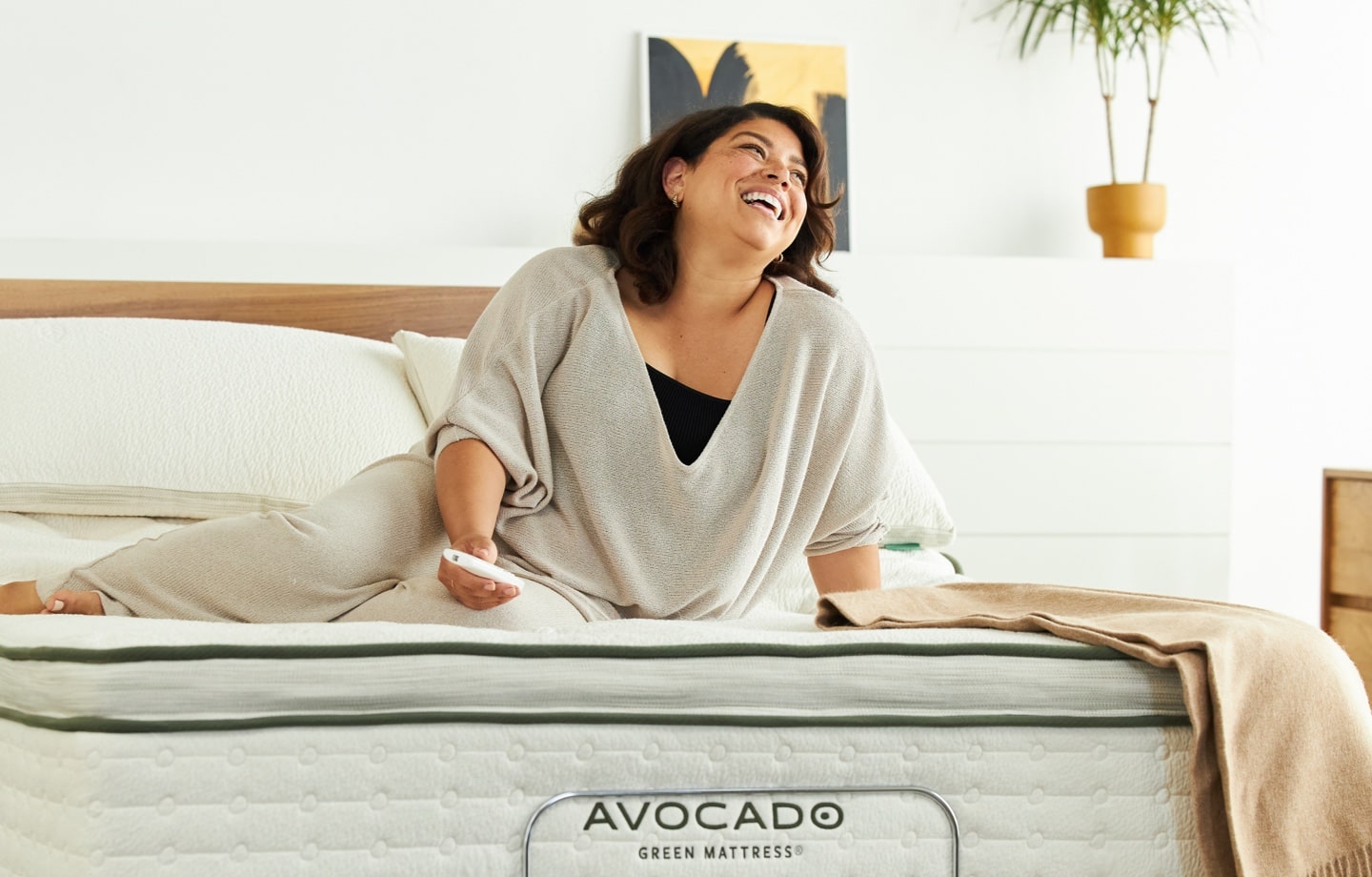
Read more: How to Keep PFAS and Forever Chemicals Out of The Bedroom
The label also holds brands to a high standard when it comes to environmental impact. Part of its testing and review process evaluates if products and materials are created with sustainability in mind — from the way they’re manufactured to how they ultimately enter the waste stream.
It’s not a one-and-done certification, either. To maintain an OEKO-TEX® label, a product must adhere to a yearly renewal and testing. “We test the products every single year to ensure they do not contain harmful levels of over 1,000 different substances used in textiles,” says Frosk. “The restricted substances and limits are updated at least annually, based on scientific data and production trends, and to stay ahead of global regulations. Throughout the year, we do additional control testing of certified products. We pull and test products from the market, from other certification processes, and during audits.”
No matter where in the world a product is produced or sold, OEKO-TEX® holds it to identical standards, limit values, and testing methods. The same samples are even tested in different laboratories to maintain the organization’s rigorous health and safety measures.
In the end, the coveted OEKO-TEX® STANDARD 100 label is only awarded when all the parts of a mattress, pillow, mattress topper, or finished product meet the test criteria. Finished products must have their own certification, even if one or all the individual components have already been certified.
“For a finished product, like a mattress, comforter, or a garment to be certified and carry the OEKO-TEX® STANDARD 100 label, that product, and every single component, must be tested — every year — regardless of how small,” says Frosk. “Of course, we test the fabrics, but we also test sewing thread, sew-in labels, fiberfill, ribbons, zippers, buttons, sequins, adhesives. In a mattress, we even test the inner springs. The reason is that if even one component of a mattress contains a harmful or toxic substance, then that product is not safe and therefore, not allowed to bear an OEKO-TEX® label.”
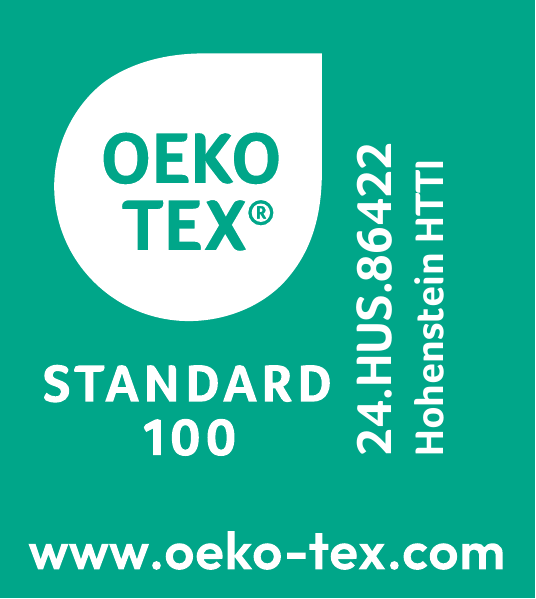 Not sure if the mattress or pillow you’re buying is OEKO-TEX® STANDARD 100 certified? The label should be listed on the product and website and will include unique identifying information like a traceable certificate number and testing lab name or QR code that links to these details.
Not sure if the mattress or pillow you’re buying is OEKO-TEX® STANDARD 100 certified? The label should be listed on the product and website and will include unique identifying information like a traceable certificate number and testing lab name or QR code that links to these details.
Of course, if you have any doubt, you can always trust Avocado’s OEKO-TEX® STANDARD 100 certified mattresses, toppers, and pillows.
“OEKO-TEX® labels are a symbol of quality,” says Frosk. “Companies work with their suppliers to achieve OEKO-TEX® certification so that consumers can trust their product.”
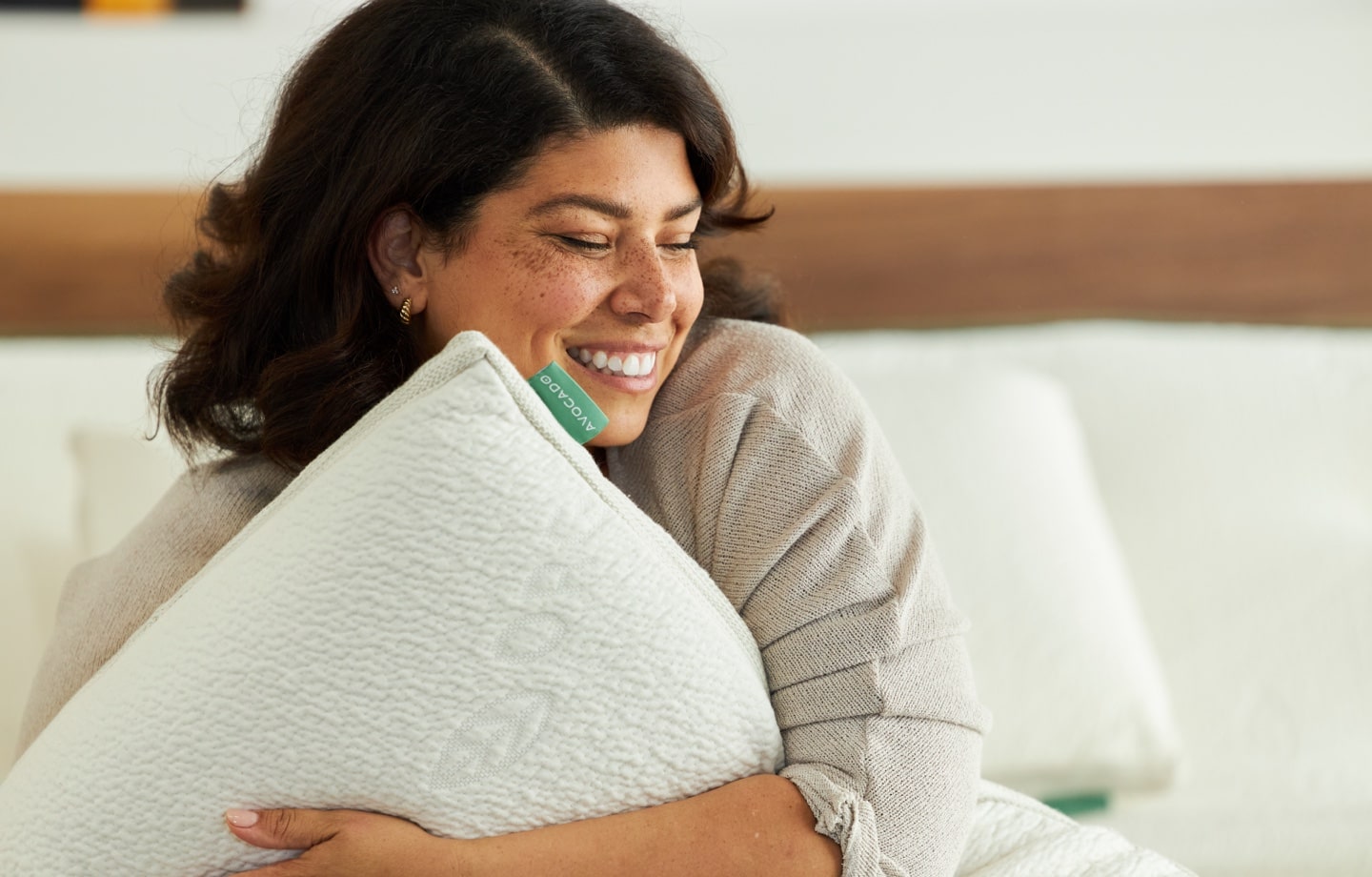
Read more: Why Fiberglass Doesn’t Belong in Your Mattress
Have feedback on our story? Email [email protected] to let us know what you think!

Shop Pillows
The Essential Organic Pillow Collection
Gentle, breathable, non-toxic support.




